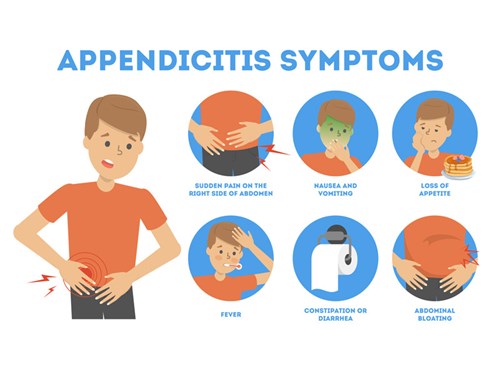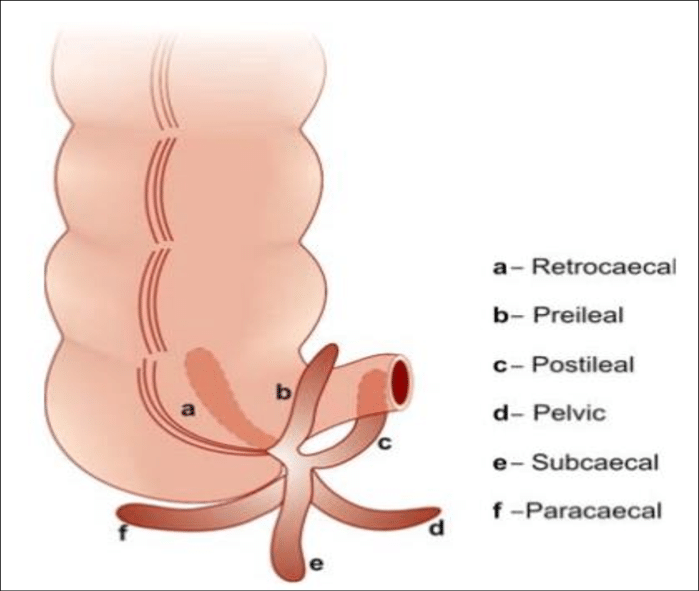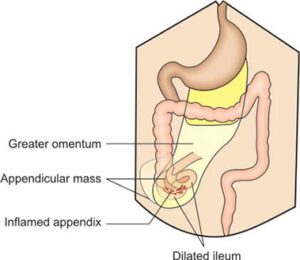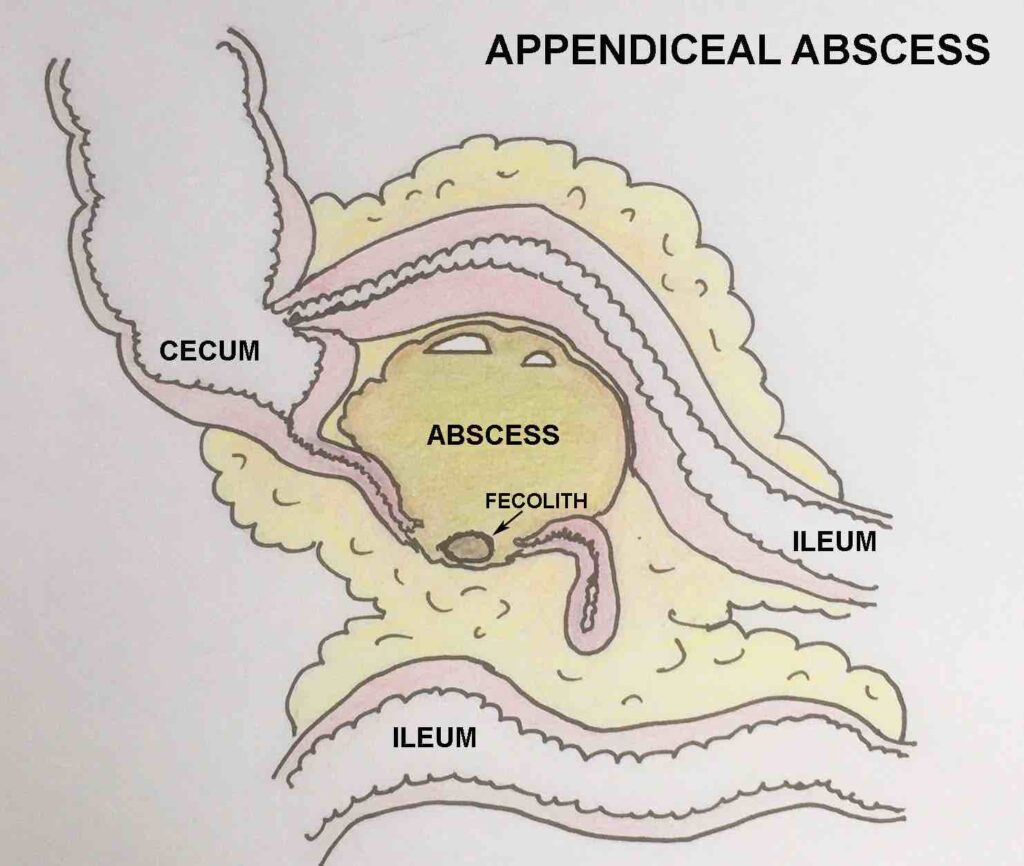Many patients ask the same question when we advise them to get operate for appendix infection. Many of them experience appendix pain for the first time but many of them may be on the second time. Despite recurrence pain, the patient thinks that there could be medicine management for any type of illness that means appendicitis too.
Although the surgeon advises there every time to get operate, they never turned up for surgery. Unless and until the patient went up in agonising pain, he never thinks of surgery. Hence you must read this article about why there is a need for surgery on appendix infection.

The fate of appendix infection
When there is an infection of the appendix in any age group of patient, infected appendix go through to some stages. In the first stage, the appendix became swollen and lost its elasticity. His size increases in length and diameter also. Normally it has a 6mm diameter. But in infection, it can increase from 10 mm to 15mm. This is because there is a collection of pus or fluid inside the appendix cavity. Due to an increase in pressure within the appendix lumen, the patient feels tremendous pain. If proper treatment is not received in form of medicine or surgery then the appendix may rupture due to increase pressure inside the lumen. This we called appendicular perforation. This is the second stage of appendicitis. But it is not necessary that an appendix rupture in every case.
If the patient with appendicitis is not received treatment properly then over one week, the appendix may get wrapped by the omentum of our body. Omentum is a thick fatty layer present in our body that always wrapped the infection site in the abdomen and tries to control infection. But because of the wrapping of the omentum, the appendix becomes a lump like structure that can now be palpable over the abdominal skin. This is the third stage of appendix infection. In this stage, the patient may feel less pain at the right lower abdomen but the surgeon can feel an abdominal lump at the same site. In this condition, surgery is not advisable and conservative management is given.

In this stage, if appendix infection has not been controlled despite wrapping up the omentum over it then the appendix may rupture and collection of appendix lies within wrappings of omentum which give rise to the formation of pus, which is now called appendicular abscess formation. This is the 4th stage. This condition is very painful and despite lump formation, if there is a collection of pus, the patient needs to get operate on immediately.
In some patients, the appendix could not be wrapped by the omentum. Because the omentum seems to be very small in size. This happens in small children and old age thin build patients. In these individuals when the appendix perforates, that may lead to the formation of generalised infection all over the peritoneal cavity because nobody going to hold appendicular infection to spread, like omentum. This could be the fifth stage and we call it perforation peritonitis due to appendicular perforation. This stage is very painful and needs urgent surgery and long hospitalisation than any other stage. At this stage, the surgical incision will be midline over the abdomen and count as major surgery.
These are the stages of any appendix infection in any type of patient. These are not textbook described stages. These are what I have created for you to understand the fate of disease.

When to operate
When to operate could not be the patient decision. It could be decided by the surgeon only. The surgeon will decide the stage of appendix infection and will guide you whether you will go for surgery immediately or at later date.
He could guide you on how to plan surgery and whether you need at least hospitalization as conservative management or not.
Acute appendicitis
If you have stage 1 appendix, and your pain has decreased with oral medicine, then you can skip your hospitalization and wait for the next episode of appendicular pain. But as a doctor, waiting for the next episode could not be a piece of good advice. The doctor will not tell you to wait. Rather he will advise you to come for surgery even though your pain has subsided. And this is authentic advice which we called an Interval appendicectomy. Means we take out the appendix before it going to start his second inning. means interval period of first and second infection.
The surgeon advises this type of surgery in all cases which have the first episode of infection.
Especially if the patient is a student, if the patient is is a businessman who always on a Business tour.
If the patient is a student, he may experience a second episode of appendix in between in his annual exam or the exam preparation period. Which could result in a loss of a year if he could not pass the exam because of the appendix. Hence to avoid such circumstances, advise interval appendicectomy.
A similar situation happens with a businessman on a Business tour. He may also land up in trouble whenever he is out of his home and having excruciating pain of the appendix which may require urgent hospitalization. He may have difficulty in hospitalization because of a lack of relatives. Hence in such cases also advise interval appendicectomy.
Appendicular lump (mass) formation
In this stage as previously said that omentum was used to wrap the appendix to cover his infection.
We call it appendicular lump formation. This stage doesn’t require surgery. On the other hand, surgery is not possible means appendicectomy is not possible at this stage. Because appendix wrapping by omentum is so tight that we could not separate it while surgery for appendicectomy. Forceful separation of omentum may cause a tear of the caecum which is a very dangerous situation.
Hence it is better to avoid surgery but patients need conservative management.
What is conservative management?
It is the management of appendicular infection, with or without lump formation. It involves hospitalisation, iv fluids, iv antibiotics, and symptomatic treatment.
Patients get discharged after few days of hospitalisation with the advice of interval appendicectomy.
What is interval appendicectomy?
As stated earlier, interval appendicectomy is the surgery done in an in-between period of two episodes. The first one is the first painful episode with or without lump formation and the second is the assumption. Before happening of next episode we need to remove the appendix.
Why this interval period? By this time after the first episode, oedema and infection of the appendix settle down. If lump formation occurs in the first episode due to omentum, it gets separated from the appendix. Generally, this interval period is after 6 weeks of the first episode. Hence after 6 weeks, you can visit a doctor and request get operation for appendicectomy.
Appendicular abscess formation
If not treated properly, the appendix may rupture at the tip of the appendix to form appendicular abscess formation. This could happen in appendicular lump formation also. If an appendicular lump develops an abscess, then it became mandatory to get operate because pus formation is a definite indication of surgery. If not treated on time, this pus may spread to the whole abdomen, which means all peritoneal cavities. Which may result in generalised peritonitis. This will be the worst condition than appendicitis.
Perforation peritonitis
This is the involvement of all abdominal cavities due to pus from perforation (rupture) of the appendix. This is a very painful condition. Patients need urgent hospitalisation. A doctor may have a diagnostic dilemma because abdominal pain is generalised, which means not localised to the right lower abdomen. Unless you give information of starting of pain at the right lower abdomen, the doctor could not diagnose the cause could be appendix perforation.
Because any small or large bowel perforation gives similar symptoms of peritonitis. Hence this condition requires CT scan scanning to confirm a diagnosis. Also need large midline abdominal incision for surgery. All these leads to more hospital stay and more expenditure compare to simple appendix surgery.
These all are the reasons why we advise our appendix patients to get operate within a period to avoid unfortunate events of the spread of infections. I hope you all understand all the events of appendix infections that may happen if not treated properly.
Thanks for reading this article. If any doubt you can mail us.
[contact-form][contact-field label=”Name” type=”name” required=”true” /][contact-field label=”Email” type=”email” required=”true” /][contact-field label=”Website” type=”url” /][contact-field label=”Message” type=”textarea” /][/contact-form]


